 Canada : Safety by City
Canada : Safety by City
Canada is the second-largest country in the world, stretching from the Atlantic to the Pacific and north to the Arctic.
The world’s largest land border connects it to the United States to the south.
Despite its vast size, much of Canada’s population lives near the U.S. border, with major cities like Toronto, Vancouver, and Montreal serving as economic and cultural hubs.
Originally inhabited by Indigenous peoples for thousands of years, Canada became a French colony in the early 17th century before falling under British control in 1763.
It officially became a country in 1867 but remains a constitutional monarchy, with the British monarch as its head of state.
Today, it’s a diverse, bilingual nation with English and French as official languages.
The regions are as diverse as history, spanning nearly 3,000 miles in all directions from border to border.
The full footprint is almost 3.9 million square miles.
- Atlantic Canada (Newfoundland & Labrador, Prince Edward Island, Nova Scotia, New Brunswick) – Known for rugged coastlines, seafood, and maritime culture.
- Québec – Predominantly French-speaking, with rich history, stunning landscapes, and vibrant cities like Montreal and Québec City.
- Ontario – Canada’s most populous province, home to Toronto, Ottawa (the capital), and the Great Lakes.
- Prairies (Manitoba, Saskatchewan, Alberta) – Flatlands, agriculture, oil production, and the stunning Rocky Mountains in Alberta.
- British Columbia – Coastal, mountainous, and home to Vancouver, one of Canada’s most livable cities.
- Northern Canada (Yukon, Northwest Territories, Nunavut) – Remote, vast, and sparsely populated, known for Arctic landscapes and Indigenous cultures.
More than 27 million people visit Canada annually, the majority from the neighboring U.S.
If you’re one of those planning a trip, this article can help you have a safe and enjoyable experience in the Great White North.
Warnings & Dangers in Canada

OVERALL RISK: LOW
Canada is one of the safest places to visit in the world. Crime is low, infrastructure is solid, and political stability isn’t an issue. Just use common sense, and you’ll have a smooth trip.

TRANSPORT & TAXIS RISK: LOW
Public transport and taxis are generally reliable and safe. Major cities have well-run transit systems, and rideshares are widely available. Rental cars, trains, bus systems, and domestic airports make it easy to get around different territories. Just be cautious in winter, as icy roads can make travel tricky.

PICKPOCKETS RISK: LOW
Petty theft happens, especially in busy tourist areas and on public transit. Keep your belongings close, don’t leave valuables unattended, and avoid carrying too much cash. While the risk is there, it's still pretty low if you're using standard safety precautions.

NATURAL DISASTERS RISK: LOW
Canada sees its share of extreme weather—blizzards in winter, wildfires in summer, and occasional flooding. Check forecasts, especially if you’re traveling in remote areas. Also, no matter what version of "winter" you are used to, Canada probably gets a much more extreme iteration.

MUGGING RISK: LOW
Violent crime isn’t a big concern, especially in tourist areas. Stick to well-lit streets at night and trust your instincts.

TERRORISM RISK: LOW
While rare, authorities consider Canada a potential target. Stay aware in crowded places, check terrorism advisory levels, and sign up for emergency alerts to stay on top of possible developments.

SCAMS RISK: LOW
The Government of Canada website has a section dedicated to the most recent and most common scams and fraud. While nothing stands out as an elevated risk, you can keep the chances low by knowing what to look for.

WOMEN TRAVELERS RISK: LOW
Canada is very safe for women traveling alone. Standard precautions apply, but solo female travelers rarely encounter issues. Just don't get a false sense of safety because the crime rates are so low. You still shouldn't go walking around dark alleys at night.

TAP WATER RISK: LOW
Tap water is safe to drink nationwide, so there is no need for bottled water unless you’re in a remote area. In fact, Canada has some of the highest quality and best-tasting water in the world.
Safest Places to Visit in Canada
Canada’s official tourism website is travel.destinationcanada.com.
For more practical information, check out the “Plan Your Trip” tab.
It will cover all the basics of visiting and getting around.
The tourism website breaks down the country into five distinct sections:
- Western Canada: Including British Columbia, Alberta, Vancouver, Victoria, Calgary, and Edmonton.
- The Prairies of Canada: Including Saskatchewan, Manitoba, Regina, and Winnipeg.
- Central Canada: Including Ontario, Quebec, Toronto, Ottawa (capital), Niagara, Montreal, and Quebec City.
- Atlantic Canada: Covering New Brunswick, Nova Scotia, Prince Edward Island, Newfoundland and Labrador, Halifax, and St. John’s.
- Northern Canada: Including Yukon, Northwest Territories, Nunavut, Whitehorse, Yellowknife, and Iqaluit.
Exploring Western Canada: Must-See Attractions
From the rugged coastline of British Columbia to the stunning Rocky Mountains of Alberta, this region is packed with unforgettable experiences.
British Columbia is home to Vancouver, where visitors can walk the Capilano Suspension Bridge, explore Stanley Park, and enjoy the city’s vibrant food scene.
A short ferry ride leads to Victoria, known for its Butchart Gardens and historic Fairmont Empress Hotel.
Beyond the cities, Whistler offers world-class skiing, and Tofino is a surfer’s paradise.
Alberta boasts the breathtaking Banff and Jasper National Parks, where turquoise lakes, glaciers, and wildlife abound.
In Calgary, the Calgary Stampede is a bucket-list event, while Edmonton is home to West Edmonton Mall, one of the largest in North America.
Discovering Canada’s Prairie Provinces
While often overlooked, this region has its own charm, with stunning natural parks, rich Indigenous history, and lively urban centers.
Saskatchewan is home to Grasslands National Park, where visitors can spot bison and explore untouched prairie wilderness.
In Regina (“ruh-GINE-uh”), the RCMP Heritage Centre showcases Canada’s iconic Mounties, while Wascana Park offers scenic walking trails.
Saskatoon charms visitors with its riverside Meewasin Trail and the fascinating Wanuskewin Heritage Park, a site of Indigenous cultural significance.
Manitoba is famous for Churchill, the “Polar Bear Capital of the World,” and the northern lights.
In Winnipeg, highlights include the stunning Canadian Museum for Human Rights, historic The Forks, and vibrant neighborhoods like Exchange District.
Nearby, Riding Mountain National Park offers hiking, wildlife viewing, and pristine lakes.
Exploring Central Canada
Central Canada—made up of Ontario and Québec—is the country’s cultural and economic heart, home to vibrant cities, world-famous landmarks, and breathtaking natural beauty.
In Ontario, Toronto offers the towering CN Tower, bustling Distillery District, and cultural hotspots like the Royal Ontario Museum.
Niagara Falls is a must-see, with boat tours bringing visitors up close to the roaring cascades.
Ottawa, Canada’s capital, is rich in history, featuring Parliament Hill, the Rideau Canal, and national museums showcasing the country’s heritage.
Montreal boasts the stunning Notre-Dame Basilica, the lively Old Port, and world-class dining.
Further east, Québec City transports visitors to Europe with its cobblestone streets, Château Frontenac, and historic Plains of Abraham.
Exploring Atlantic Canada
Covering New Brunswick, Nova Scotia, Prince Edward Island, and Newfoundland & Labrador, this region is packed with natural wonders and cultural gems.
In New Brunswick, the Bay of Fundy boasts the world’s highest tides, best seen at Hopewell Rocks.
The capital, Fredericton, offers a rich history and charming riverfront trails.
Nova Scotia is home to Halifax, a vibrant port city with the Citadel National Historic Site and a lively waterfront.
Outside the city, the Cabot Trail winds through Cape Breton’s breathtaking coastal cliffs.
Prince Edward Island (PEI), Canada’s smallest province, is famous for Green Gables, endless red sand beaches, and scenic rolling farmland.
The capital, Charlottetown, is known as the birthplace of Canada.
Newfoundland & Labrador is wild and rugged. St. John’s offers colorful row houses and incredible ocean views.
Just outside the city, Signal Hill and Cape Spear are must-visits.
For nature lovers, Gros Morne National Park delivers fjords, mountains, and wildlife.
Exploring Northern Canada
Northern Canada—made up of Yukon, Northwest Territories, and Nunavut—offers some of the most remote, untouched landscapes in the world.
This is where the Arctic wilderness meets Indigenous culture.
In Yukon, Whitehorse serves as the gateway to the wild, with highlights like the SS Klondike historic site and the breathtaking Kluane National Park, home to Canada’s tallest peak, Mount Logan.
For a true Gold Rush experience, Dawson City preserves its frontier history.
The Northwest Territories is famous for the Aurora Borealis, best seen in Yellowknife.
In summer, Great Slave Lake offers fishing, kayaking, and scenic boat tours, while Nahanni National Park is home to Virginia Falls, a waterfall twice the height of Niagara.
In Nunavut, the capital Iqaluit introduces visitors to Inuit culture, while Auyuittuq National Park features glaciers and rugged Arctic landscapes.
Wildlife enthusiasts can head to Ellesmere Island to spot polar bears and narwhals.
Places to Avoid in Canada
Canada doesn’t have any cities or regions that are too dangerous to visit, but I do want you to understand some of the natural risks in the particular areas.
The Yukon Territory is not a place for casual travelers.
Unless you’re highly experienced in wilderness survival, self-rescue, and extreme weather preparedness, it’s best to avoid venturing too far.
Winters are brutally cold, with temperatures dropping below -40°F, and even summer brings unpredictable storms.
Wildlife, including grizzlies, is a real threat, and cell service is nearly nonexistent outside of towns.
Roads can be impassable, and if you get stuck, rescue may not come quickly—if at all.
Wildfires in summer and icy conditions in winter add to the danger.
Without the right skills, heading into the Yukon could be deadly.
Hire a guide if you’re not skilled enough to go it alone.
Also, use caution around the Bay of Fundy.
It has the highest tides in the world, rising rapidly—up to 50 feet—every six hours.
If you’re walking on the mudflats or exploring coastal areas at low tide, plan your route carefully.
The water can rush in faster than you can escape, leaving you stranded.
Safety Tips for Traveling to Canada
- The Royal Canadian Mounted Police are in charge of law enforcement in Canada. Dial 911 for immediate police assistance. This number also connects you to fire and medical services. Follow them on Facebook @rcmpgrc or look for the social media site for the agency in the city you plan to visit.
- Canada’s Alert Ready (www.alertready.ca) system broadcasts emergency notifications via television, radio, and compatible wireless devices. Ensure your mobile device is updated and capable of receiving these alerts. The formal name is the National Public Alerting System (NPAS).
- Canada has strict entry regulations. A past DUI or other criminal convictions can render you inadmissible. It’s advisable to consult official immigration resources or legal counsel before planning your visit. If you have had a DUI in the past decade, check out the Border Services Agency for the application for entry.
- Police throughout Canada are tackling theft in a way that could get YOU in trouble if you don’t lock your car. In some cities, leaving your vehicle unlocked may result in fines, as authorities aim to reduce theft by enforcing strict vehicle security laws.
- Canada uses the metric system. Speed limits are posted in kilometers per hour, and distances are measured in kilometers. Familiarize yourself with metric conversions to ensure compliance with traffic regulations. Mapping systems will also display in kilometers.
- Canada spans six time zones, from Newfoundland Time (UTC−3:30) to Pacific Time (UTC−8). Be mindful of time differences when traveling across regions or coordinating activities. The boundaries don’t always perfectly match up with the time zones in the U.S.
- Fishing in Canada requires a valid license, which can be purchased online or at authorized vendors. Regulations vary by province and territory, so check local guidelines before fishing.
- Wildfires are common in areas like British Columbia and Alberta, especially during summer. Stay informed about fire risks and air quality by monitoring local news and official websites. I like IQ Air for a quick air quality check wherever I go.
- Canada enforces stringent laws against child pornography. Border officials may conduct random checks of electronic devices. This doesn’t mean you’re suspected of having child pornography. It’s part of the standard process for entering the country, much like random bag searches happen at U.S. airports.
- Don’t use a radar detector in Canada. In some places, like Québec, Ontario, Manitoba, the Yukon, or the Northwest Territories, they are illegal. You risk getting a hefty fine and having your device taken away.
So... How Safe Is Canada Really?
Canada is one of the safest countries to visit, with low crime rates and a generally secure environment.
In 2023, the homicide rate dropped by 14%, hitting its lowest point since 2019.
That said, overall crime saw a slight increase, mostly from non-violent offenses like fraud and shoplifting.
While violent crime has gone up by about 30% over the past decade, it’s still rare, especially in places tourists typically go.
The biggest concern for visitors is petty crime—things like pickpocketing in busy city centers or crowded attractions.
The U.S. Department of State gives Canada a Level 1 rating, meaning you just need to exercise normal caution.
A highly regulated tourism industry means you can also enjoy activities in Canada with confidence.
Bottom line?
Canada is a very safe place to travel.
As long as you stay aware of your surroundings and take basic precautions, you’ll have a smooth and enjoyable trip.
How Does Canada Compare?
| Country | Safety Index |
|---|---|
| Canada | 88 |
| Morocco | 54 |
| Iceland | 95 |
| Croatia | 83 |
| Italy | 77 |
| Malaysia | 69 |
| Austria | 92 |
| Spain | 83 |
| Botswana | 77 |
Useful Information

Visas
Entry requirements depend on your nationality. U.S. citizens don’t need a visa for short visits, but many travelers need an eTA (Electronic Travel Authorization). The same rules apply if you're crossing the border for a few hours from the U.S. or flying into a major metro area. Your criminal history can impact whether you'll be allowed access, even with the appropriate documentation.

Currency
Canada uses the Canadian dollar (CAD). Credit and debit cards are widely accepted, but carrying cash for small purchases is useful. ATMs are common, but international fees may apply. In cities that border the U.S., there could be locations that accept the U.S. Dollar (USD).

Weather
Canada’s climate varies drastically. Winters are harsh, especially in the north and interior, while summers can be hot in many regions. Coastal areas like Vancouver are milder but rainy. Spring and fall bring unpredictable temperatures. Pack accordingly, and check weather forecasts before traveling, especially in winter.

Airports
Major international airports include Toronto Pearson (YYZ), Vancouver (YVR), and Montreal-Trudeau (YUL). Expect long immigration lines at busy hubs. Regional airports serve smaller cities, but remote areas may require bush planes.

Travel Insurance
Healthcare in Canada is excellent but not free for visitors. Travel insurance covering medical expenses, cancellations, and lost luggage is highly recommended. Without coverage, medical costs can be extremely high. Adventure travelers should check if activities like skiing or hiking are included, as some policies exclude them. You can get a separate policy for higher-risk activities.
Canada Weather Averages (Temperatures)
Average High/Low Temperature
| Temperature / Month | Jan | Feb | Mar | Apr | May | Jun | Jul | Aug | Sep | Oct | Nov | Dec |
|---|---|---|---|---|---|---|---|---|---|---|---|---|
| High °C | -6 | -4 | 2 | 10 | 18 | 23 | 26 | 25 | 19 | 11 | 3 | -4 |
| Low °C | -16 | -15 | -8 | 0 | 7 | 12 | 15 | 14 | 9 | 3 | -4 | -13 |
| High °F | 21 | 25 | 36 | 50 | 64 | 73 | 79 | 77 | 66 | 52 | 37 | 25 |
| Low °F | 3 | 5 | 18 | 32 | 45 | 54 | 59 | 57 | 48 | 37 | 25 | 9 |
Canada - Safety by City
| City | Safety Index |
|---|---|
| Abbotsford | 83 |
| Brampton | 82 |
| Burnaby | 65 |
| Calgary | 82 |
| Coquitlam | 86 |
| Edmonton | 86 |
| Halifax | 79 |
| Hamilton | 76 |
| Kelowna | 76 |
| Kitchener | 75 |
| Mississauga | 85 |
| Montreal | 81 |
| Nanaimo | 32 |
| Niagara Falls | 87 |
| Oshawa | 42 |
| Ottawa | 83 |
| Quebec City | 85 |
| Red Deer | 32 |
| Regina | 74 |
| Saskatoon | 73 |
| Thunder Bay | 65 |
| Toronto | 81 |
| Vancouver | 82 |
| Victoria | 82 |
| Windsor | 81 |
| Winnipeg | 77 |
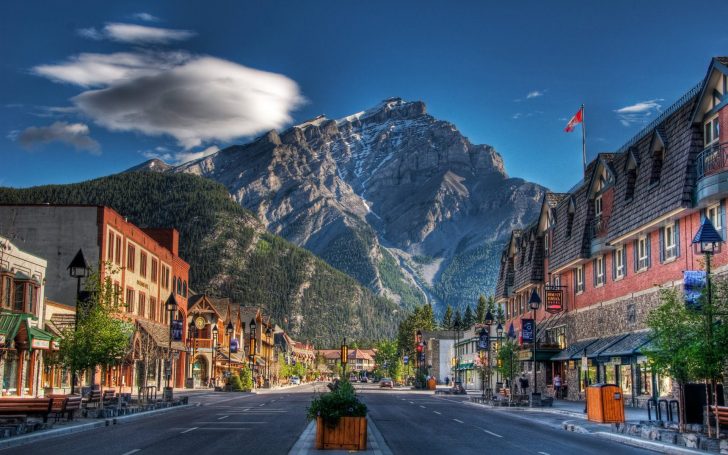
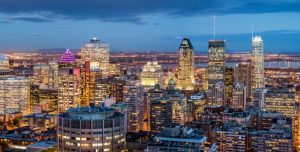
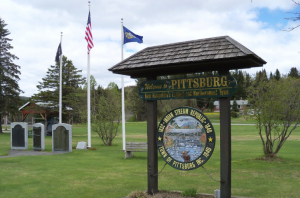
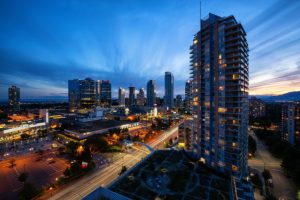
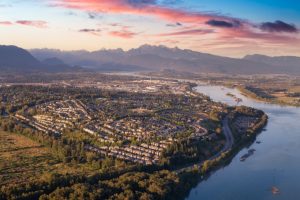
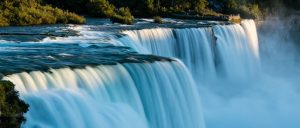
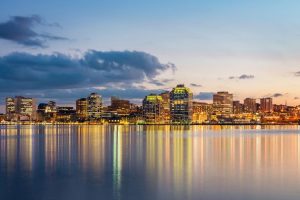





PLEASE COME
I was born here, its so beautiful and safe! You should come here
Maritimes
Visit the Maritimes its beautiful and is very safe.
From UK, Looking to visit this year, the UK is just getting terrible with knife crimes, stabbings gangs with guns. Fortunately I don’t live in London but I know eventually it will move to my area .If I could move to Canada I defiantly would.
Looking forward to visit…
Come visit!
You want to come? Come!
Canada is a huge country and would take about a week to drive from the Atlantic Ocean to the Pacific.
Most of it is covered by forests, farmland, freshwater lakes and rivers.
The north is permafrost, with very small vegetation.
Wildlife is abundant but mostly harmless with a few exceptions.
There are no dangers from snakes or poisonous animals.
There are a few plants that can cause skin irritation but, but rare, and will not exist in tourist regions.
The cold of winter could kill you if you do something stupid.
Pretty much every large city in the world has some crime but Canada is one of the safest.
The police will protect you and are not corrupt but if you break the law you will be held accountable.
Handguns and assault weapons are illegal so don’t try to bring them there.
Hunting guns are aloud but don’t walk down a city street with one as there are strict laws regarding their use.
Don’t drink alcohol or smoke weed and drive.
Yes, cannabis is legal but certain jurisdictions prohibit smoking in public places and it is restricted as to how much you can grow or possess in different jurisdictions.
Also, alcohol has restrictions as to where it can be consumed.
The food is safe in restaurants and grocery stores as it is regulated and inspected.
The highways are safe and patrolled regularly by police and are well maintained.
People will stop to help you if you are in trouble.
It’s a “rule of law country” so everyone has the same rights regardless of religion, skin color, sex, or whatever.
There are very little discrimination and less all the time.
The laws are there to protect you so you can have fun in a safe healthy environment.
authoritarian fascist nation
The article says:
“Canada is known on the international stage for its diplomatic skills, peacekeeping tendencies, tolerance and respect of human rights, and is highly respected because of it.”
It seems that needs to be revised because the Canadian Government is acting like Putin’s Russia by threatening and arresting peaceful protesters. I wanted to visit Canada but it is looking like an authoritarian fascist nation in 2022.
Under Trudeau, it is tending that way but that doesn’t change the people, the country or the culture. Canada is a beautiful and safe country.
Continues to be one of the best countries to live in the world
I am no fan of Trudeau but Canada continues to be a great country with excellent law and order. Peaceful protesters are not arrested unless they are blocking traffic and making life miserable for citizens.
Biggest danger to Canada is the far right moving into rural Canada from USA. The so called Freedom Protesters (Trumpsters) did not obey the laws as they were relying on their white privilege. Truely they only were fighting for their vision of freedom and no one else’s. Except for very few areas in cities, and some rural prarie areas, walk at night with no worries.
Stop spewing misinformation, we are one of the best country to live or visit!
I agree with 99.9% of this. One small mistake on poisonous creatures. In British Columbias Okanagan region there are rattle snakes. It is very rare to even see one however but they’re definitely there. They usually mind their own business so if you see one just keep your distance and you won’t have any issues.
I’ve visited Canada a few times – mostly Victoria, British Columbia, Toronto, Ontario, and Halifax, Nova Scotia. I always felt safe, calm, and happy whilst there. The locals are exceptionally down-to-earth and absolutely no problems should arise of your visit.
Update on travel to BC
There is increasingly violent crime in Vancouver and suburbs. Anyone considering travel to Southern British Columbia should remain vigilant and be wary of their surroundings. There have been an upsurge of violence , mainly assaults and stabbings , I don’t recommend to walk alone at night in the city of Vancouver.
Vancouver
It’s mportant to have your facts straight when you post here as folks rely on forums such as these. The crime rate across Canada has seen a surge since Covid. Not only Vancouver but everywhere. It’s still one of the safest countries in the world to visit. The crime rates everywhere have gone up since Covid. Our crime rate in Canada is much lower than our American neighbor to the south, by far, since guns are legal there . I have lived in Vancouver for 40of my 68 years and have never experienced a violent crime and nor do I know anyone here that has. Raised my family here and they are both over 40 now, neither have had a problem. Daughter lived and worked downtown and most certainly saw a few sketchy people but other than the occasional skytrain issue, overall it’s safe. Yes you need to be diligent, as you should always be when travelling in a foreign country.
My favorite country
Having been to Canada over a dozen times.. There is no other place I would recommend being safer to travel to. The place is absolutely beautiful for the wildlife and wilderness areas. My brother moved there to live with his wife and become a citizen back in 2008 and I have made trips up there since. Every time I go, I just don’t want to leave.
Mostly nice
Canada is a safe place, for the most part. You have to worry about religious areas though. Certain places are being taken over by Islam extremists who are trying to push Sharia Law on everyone in the surrounding areas. Unless you live or visit near one of these places, chances are you won’t even know about them because the government refuses to talk on it. Same thing here in my home in the UK.
A reply to Tina.
I would like to know which parts of Canada are being “taken over by Islam extremists trying to push Sharia Law on everyone”. I’ve never seen an example of it and I’m a non-Muslim living next to an Islamic centre in a city that has a high Muslim population.
Moreover, even if true, if they were trying to impose laws that would be in violation of the Criminal Code (federal law), you could report them to the RCMP who, I assure you, have no tolerance for extremists of any kind, especially those breaking the law.
What Jeff said.
I live in Ontario and this never happens
A RELAXED KIWI MIGRANT
As a New Zealander, I find Canada noisy, expensive and racist but work pays well. The only place I’ve been mugged has been Washington, D.C. (and I’ve worked and travelled around Europe and the Pacific,)
TOTALLY AGREE
New Zealand
The worst people in the world seem to come from New Zealand. Not sure why, but boy have you ever spoken to someone from Australia about New Zealand… they really have a very poor opinion of them. They don’t even consider them a real country.
Bull. I have lived here all my life and have never heard such stupidity. We ARE multicultural and we are very proud of that and the way we get along and accept differences. Sharia Law. Ridiculous comment. I have heard of a situation re SL once and used to work in an area that would be privy to it. Doesn’t exist to the extent one should be concerned.
Reply to Tina
Tina, what you are saying is nonsense, but I suspect most people will know that.
A Great Country but it’s changing politically
Tina is correct in her statement. Under our PM Trudeau the political landscape has changed and changing ever faster. I have lived in Canada since 1954 and have served in the RCN and am not happy with the changes as I don’t want Canada to start to look like France and become so dangerous.
Tina
I am Canadian.
What you wrote is simply not true.
There are no parts of Canada being “taken over” by Islam extremists or any other extremists, religious zealots, or any other group.
No-one is “pushing Sharia Law” on anyone.
Please better inform yourself and please come a for a visit sometime.
Canadians, including Canadians of all religious and non-religious stripes, would love to welcome you!
Test, just a test
Canadian citizens who wish to extend the period of their stay in Egypt should address the Immigration Authority of Egypt. The Embassy of Canada does not issue documents to assist in extending the period of stay in Egypt. Canadian citizens attempting to depart Egypt after the expiration of their visa may be required to pay a fine at the airport. Travellers should ensure that they arrive to the airport early with sufficient Egyptian currency to pay any fines. If you intend to stay for more than one month and have obtained a visa from an Egyptian embassy or consulate abroad, a 30-day visa will be stamped in your passport regardless of the visa previously granted. You are responsible for renewing this visa. You must show proof of an entry stamp in your passport when you leave Egypt. If you cannot provide proof of entry, you cannot obtain an exit stamp and will be denied exit.
Canada NOT so good!
Canada is Beautiful but TERRIBLY Expensive and everything is Overpriced. BRING LOTS OF MONEY. Also Canada is Over Governed so they also will try to take as much of your Money as possible. If working in Canada you will find a disgusting rate of pay. Ask any Aussie or Brit who has come for a Work / Skiing vacation.
True.
James?! Ugh that wouldnt pose a threat to me
Reply to James
Canada has some of the lowest taxation rates in the OECD. People like to complain about it, but it’s very old news from decades ago. Australia and UK are both more expensive. As to being “over-governed,” it may be that you are overly libertarian. We’re mostly fine with the way we’re governed.
Sensible Precautions!
Hi please come and visit Canada, but don’t be complacent about safety just because it’s one of the safer countries. Don’t wander off into the wilderness without an experienced guide. If you don’t know what you’re doing, you could get lost, die of exposure to cold, be mauled by a bear, fall off a cliff or be swept over a waterfall. I’m not kidding. In some areas it’s even possible to die of too many mosquito bites if you’re out there for a long time. Don’t go off in a boat or canoe without a guide if you don’t have experience. Our rivers can be very powerful and very cold. You can be swept under by the currents, or die from the cold before you get out of there. Be aware that some areas of Canadian cities are not safe to walk around in at night, even if our cities are mostly safe. Ask the locals about the areas to avoid. Enjoy plenty of maple syrup and I hope you get out of here alive 😉
Pff
“Hope”?? Is this Ukraine? The chances of someone coming out of Canada alive is probably 99.3% if not higher just don’t go to thompson lol. I heard it’s very unsafe.
Safe, diverse, beautiful, expensive.
So you’re saying 7 out of every 1,000 tourists will die in Canada? Ridiculous! Canada receives millions of tourists every year, and is one of the safest countries on Earth. You’re probably less likely to die here as a tourist than if you just travel around your home country. That said, healthcare here is problematic, and you shouldn’t come if you’re not healthy and fully insured. Canada is also very expensive, especially food, lodging, and transportation. Despite being known as a cold country, Canada can be dangerously hot in many places in the summer; it’s best to travel here in the spring and fall, avoiding hot summers and cold winters. Know your cities before you wander around them at night; some areas of some of the larger cities are not safe at night. Canada’s population is 40 million, and it is one of the fastest growing countries on Earth. It is very diverse; explore all the world’s cultures right here. We welcomed one million newcomers this past year. Talk with us; most of us are friendly and helpful, and some of us are jerks…you can read some of the jerks posting crazy stuff on here.
I’m planning a 3-4 month solo trip to Canada. I’ll work from there only and will explore on weekends. Which cities should I plan to go?
Quebec City, Vancouver Island; and NO GUNS! (Washington, D.C. is the only place I’ve faced a gun in the street or been mugged!
Quebec City! A beautiful ‘must’: and check out the Plains of Abraham.
No one cares not even police and no one can protect any one and they expect you to protect your self
Canada is the best and compared to other parts of the world specially U.S. which is the worst when comes to being mugged and robbed or even facing police running with shot guns i subway…Canada is far better and lovable. The government is decent compared to US . I would never come to US. I personally was robbed 3 times in us during my only time traveling..once at bank of America..from a car while being by the bank front door and infornt of the security guard.. the second was in California by an outlet which they damaged the rental car and stole.legguge from 5 cars and the security stated it is very normal and the third was at the apartment in which even shoes were stolen. I really wish to never have visited us.
Why rate Canada 1 Star then?
great canada
I live here
perfection
I live here and I gotta say this is a nice place to live in! No risks or anything. I recommend it
Canada is a magnificent country with low crime and a good standard of living. However, in most of Canada’s millions of square miles, there are very few people. The true north is filled with wildlife and, yes, it can be dangerous. For example, in Ontario alone, I’ve crossed paths with moose, bear and wolves while hiking on my own in our boreal forests. Most visitors will never see any wildlife and that is too bad. Take the time to go beyond the cities and see our natural wonders.
Safe, but beware of the Indians (from India)
I’ve been living in Canada for over 30 years, it’s unquestionably safe for tourists. However, the past few years, there has been a massive influx of Indian immigrants, to the extent that they have completely taken over certain places like Brampton, Vancouver and certain parts of Toronto. They’re definitely ruining the ambiance and image of this country. They feel like no rules apply to them. It’s almost like an infestation. Too many Indians are washing away the identity of Canada.
Nature Not Criminals
I am Canadian born and raised, so I know of what I speak.
As far as crime, probably one of the safest places in the world. I would say that theft from vehicles is the number one worry for tourists. In short, don’t leave valuables on display in a vehicle, especially over night.
The only other real dangers come from the natural world.
If you’re coming in winter, the cold can be extreme. People have been known to freeze to death if not properly attired. This is likely to be of minimal concern in large cities, but if travelling to more rural areas, be prepared. I would also not recommend winter driving if you come from a warmer country. It takes some time to learn to do so safely. The simplest solution to my way of thinking is to come in the summer when you can wear shorts and a t-shirt. There are more appealing places to be in January than in Canada!
Wildlife does pose some threat. While bears and cougars do occasionally target humans, it is rare and only likely to affect hikers venturing a little further off the beaten path. The more likely threat from wildlife comes when driving, particularly at night. Hitting a large animal like a moose or an elk is quite commonly fatal for all life forms involved. Smaller animals like deer, not so much. Be cautious when driving in rural areas at night. I’ve heard of many more stories of people meeting their end from hitting a large animal on the road than from running across an ill-tempered bear while strolling through a meadow.
Beautiful country
I love going to Canada, it’s almost my second country. I have siblings that live there and I come as often as every two weeks (before the pandemic) to visit with them ever since I lived in the US.
I have visited more places and provinces in Canada than in the US. My family along with my sibling’s family have been camping in Penticton since my kids and all their cousins were little. Such a beautiful place.
Maybe, just maybe, I dream of living there one day.
Agreed
I agree Canada can get extremely cold. Correct me if I’m wrong but I live in one of the warmest cities in Canada Compared to other cities yet it gets so cold to the point my eyelashes go white. Dress warmly before you enter this country.
People who act with integrity
I have lived in Canada all my life, have seen most of it, have lived in the US, and have visited many other countries.
I also do business with people in every province of Canada on a daily basis as well as those from at least 20 countries that I can name off of the top of my head.
What is always remarkable to me is that Canadians (right up there with Aussies, Kiwis, Germans in particular) are the easiest and most transparent people to do business with.
They do what they say they will do, a deal is a deal, no hassles.
That would be my experience traveling within my country too.
Honestly it's a great country
This is my personal Opinion: Great Country just government shooting has been on the rise too. Just try not to go outside in the night, because that is when shooting happens the most. That’s it.
Why Didn’t It Get Yellow Color? There Has Been An Ax Terror Attack In My Location
Incredible wilderness
The nature in this country is very beautiful.
I would like to visit Canada in 2025 in the summer. Its a beautiful place and it’s safe.
have been to 40 countries including ‘dangerous’ countries like Colombia and Mexico. Toronto is the only place I have been robbed
the weather is a safety factor in Canada
I find it interesting that Canada is rated as safer than Japan (where I, a Canadian, currently live). I think the weather has to factor into Canada’s safety rating more than it does in this review. It’s very easy to get into serious trouble in winter. E.g. If your GPS leads you astray or you have car trouble. There are many large areas of Canada where this could be a death sentence, and foreigners from many countries will not be prepared.
Read this
I often got robbed my toys… in kindergarten. Its really safe there. Just don’t be stupid